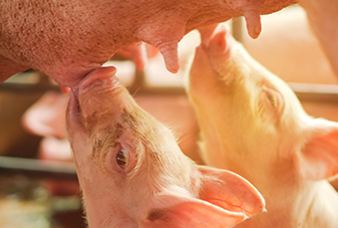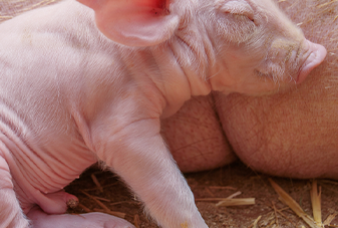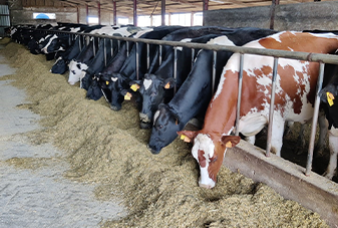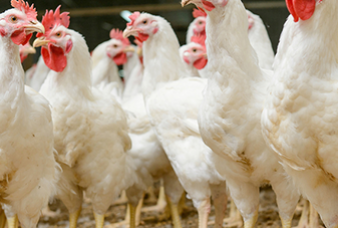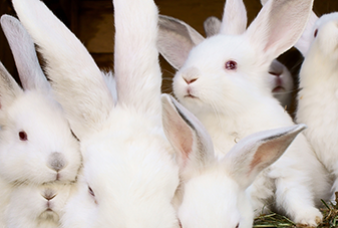
Products
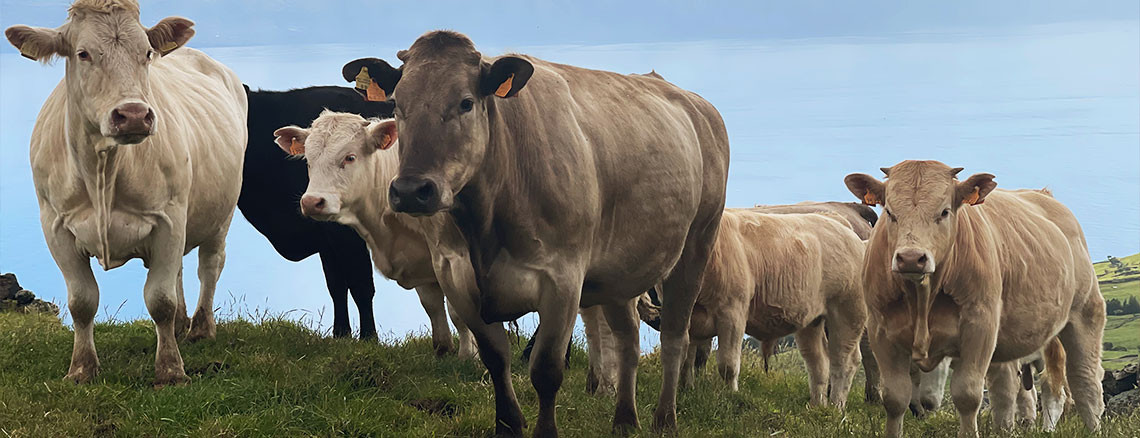
Improving health and performance
Improving animal health and performance, by limiting the use of antibiotics
Back in the 5th century BC, Hippocrates was known to say “Let food be thy medicine and medicine be thy food.” This famous saying has never been so truthful as today, both in human and animal nutrition. Since the beginning of the 21st century, the CCPA GROUP has studied the impact of nutrition on animal resistance to environmental conditions. This strategy is supported by a complete range of additives, feeds, hygiene products and associated diagnostic services.
Improving livestock health
Over their lives, animals are exposed to the numerous bacteria and viruses naturally found in the environment, in addition to undergoing critical stages, which make them particularly sensitive to pathogens, stress and inflammation and condition their performance, namely birth, weaning, peripartum, allotments, handling, etc. The CCPA GROUP has developed several diagnostic methods that enable a fast evaluation of risk exposure levels and the adoption of adequate measures, e.g. the Axiscale diagnostic tool, which is used to evaluate the levels of oxidative stress in animals.
Animals rely on two types of immunity for defence, namely the innate (natural) immunity, present at birth, and the acquired (specific) immunity, which is progressively developed through contact with foreign substances (antigens). Feeds have direct and indirect effects of these two types of immunity. Optimising the diet of mothers contributes to improving the health and resistance of the offspring. From an early age, animal nutrition is closely related to the development of the intestinal microbiota. Certain ingredients and raw stuffs stimulate the development of a beneficial flora and protect the integrity of the intestinal barrier.
The CCPA GROUP has researched these two aspects and developed specific products for each species.
Animals rely on two types of immunity for defence, namely the innate (natural) immunity, present at birth, and the acquired (specific) immunity, which is progressively developed through contact with foreign substances (antigens). Feeds have direct and indirect effects of these two types of immunity. Optimising the diet of mothers contributes to improving the health and resistance of the offspring. From an early age, animal nutrition is closely related to the development of the intestinal microbiota. Certain ingredients and raw stuffs stimulate the development of a beneficial flora and protect the integrity of the intestinal barrier.
The CCPA GROUP has researched these two aspects and developed specific products for each species.

Find it out
Contact us
M.: Zona Industrial da Catraia, Apartado 503441-909 Santa Comba Dão
GPS coordinates:
40°24’51.6”N 8°07’32.0”W E.: geral@din.pt
E.: laboratorio@din.pt
Tel.: +351 232 880 020
(Call cost to national fixed network)
© 2026 D.I.N. All rights reserved. Design by ativait. Development by designbinário | Privacy policy | Denunciations channel | Código de Conduta | Complaint book


